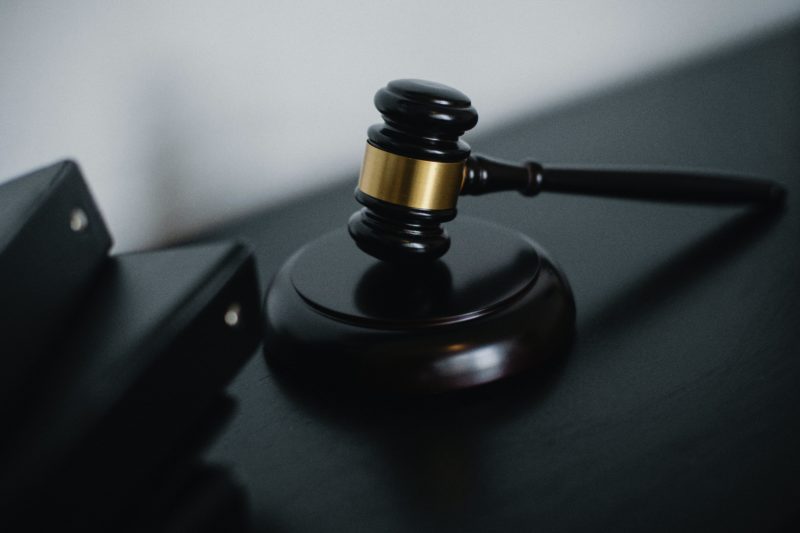
Appointing someone with power of attorney over your affairs can be a complex process riddled with nuances and lots of decisions to make. In this post, we’ll help you understand the different types of power of attorney and how to use them to ensure your medical and financial decisions are carried out properly.
What Is Power of Attorney?
The power of attorney (POA) gives one person (called the agent) the power to make legal property, financial, and medical decisions for another person (called the principal) when they are unable to do so. People usually implement this power when the principal falls ill or develops a disability and isn’t able to make necessary decisions for themself.
You might consider appointing someone as power of attorney when you’re entering into long-term care. You don’t have to appoint an attorney as POA—you can choose a close friend or family member—just be sure to pick someone you trust.
How Power of Attorney Works
There are POA templates available online for download, but each state has different requirements, so if you choose to download a document, be sure it’s for the state that you live in. If you don’t want to risk filling out the wrong form, you can always contact a local attorney who practices family law to draw up a POA for you.
Be sure to check your state’s specific POA requirements as some places require notarization of the principal’s signature and often witness signatures, too. While all states accept POA, their procedures might vary.
When you’re ready to delegate powers under a POA, it’s important to know the different types of POAs available. From general power of attorney to durable power of attorney, principals can delegate as few or as many powers to the agent.

General Power of Attorney
When someone is given the general power of attorney, this means they are able to act on behalf of the principal to make any financial or medical decisions. These decisions may include keeping up with bank accounts, selling properties, filing annual tax returns, or working with medical professionals to determine necessary treatment plans.
However, some people prefer to assign a limited power of attorney instead, which limits the areas in which the agent can act on behalf of the principal. For example, many people will only appoint someone POA over certain financial accounts while they appoint someone else to handle their medical affairs.
If someone is a financial agent, they can access bank accounts and make payments on the principal’s behalf for things like housing and medical care. They are also able to file tax returns, make investments, manage debts and properties, and apply for any applicable benefits, such as Medicare.
A medical or health care agent agrees to make medical care decisions for the principal if they are incapacitated, and these specific decisions are usually discussed on the signing of a POA. These decisions include:
- Choosing where and what type of medical care the principal will receive
- Finding doctors and/or a care team for the principal
- Implementing a nutritional plan for the principal or working with the principal’s care team to determine what the principal will eat
A general power of attorney typically allows the agent power over both medical and financial decisions, but there are still limitations to some parts of the principal’s life. No matter the POA you choose, the agent cannot make changes to your will, make any decisions on your behalf after you pass, or transfer their duties to someone else. They also are not able to vote for you, but they can request a ballot for you if you are unable to vote in person.
Durable Power of Attorney
While a general POA allows the agent power over all financial and medical decisions, this is all contingent on the principal’s state of mind. If at any point during the agreement, the principal becomes mentally incapacitated and can no longer make decisions for themself, the POA will have to be terminated.
However, if someone knows they are terminally ill or is aware that their mental health will decline and wants the POA to remain in effect after their health declines, they would need to appoint a durable power of attorney (DPOA).
A durable power of attorney allows you to plan ahead in the event of a medical emergency, mental decline, or any other challenges that would keep you from making your own decisions about your medical care. This general DPOA can take effect upon signing, or you can request that it only becomes effective when you are incapable of making decisions.
You can also appoint a DPOA for your finances, allowing someone to manage your business and financial matters including, signing, depositing, and mailing checks in addition to managing any accounts.
If you are appointed as a healthcare or financial DPOA, be sure to have the power of attorney document with you when conducting affairs as medical and financial institutions will need proof that you are able to make decisions on the principal’s behalf.
It is important to note that the durable power of attorney is different from a living will, which typically includes end-of-life care details. A DPOA can certainly make medical decisions and pay any medical-related expenses on the principal’s behalf, but they do not have the power to decide when to take someone off of life support.
A DPOA can end for any number of reasons. As the principal, you can end a durable power of attorney as long as you are still in a mentally competent state to do so. You can also revoke power from your ex-spouse in the event of a divorce. Other reasons for the termination of a DPOA are the court declaring your document invalid or if your agent decides to end the agreement and you have no alternate agent available.

How to Sign as Power of Attorney
So now that you know the ins and outs of POAs, how do you sign on to be someone’s power of attorney? It might seem as simple as signing a piece of paper, but there are a few things to keep in mind:
- You want to be clear that you are acting as power of attorney. You can sign a POA in a couple of ways:
- “John Doe, by Jane Doe under POA”
- “Jane Doe, power of attorney for John Doe”
- Be sure to check with either the attorney drawing up the document or the principal to see if they have a specific format you need to use to sign as some institutions, including banks have certain signing requirements.
- Bring your POA document with you to each place or scenario where you are making decisions on the principal’s behalf.
Is the Power of Attorney Valid After Death?
A common question when it comes to POA is, “does power of attorney end at death?” And the answer is yes. Any general or durable power of attorney ends at the principal’s death, which means that the agent does not have authority over transactions, such as paying off debts, selling or transferring property, or even coordinating funeral arrangements. If you do want someone to have power over these things after you pass, you’ll need to name that person as your executor in your will.
If you don’t have a will, all affairs after your death will be handled according to state law in which the court will appoint someone to settle your estate. Any of your surviving friends and family can apply to carry out any necessary affairs, and the court will usually accept these types of applications, but to make it easier on your surviving loved ones, it’s best to have a will with an executor named.



Recent Comments